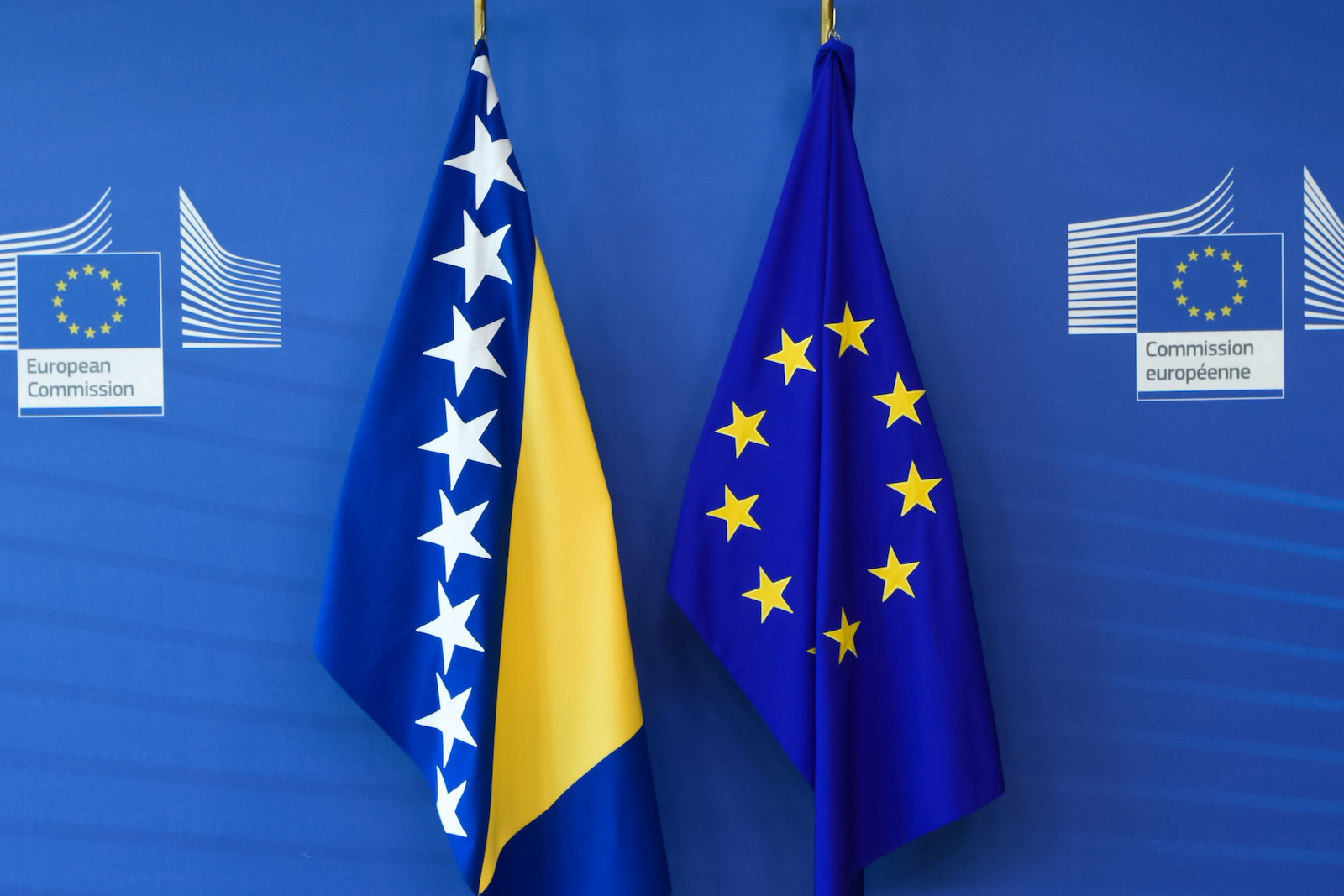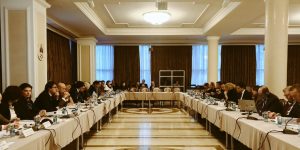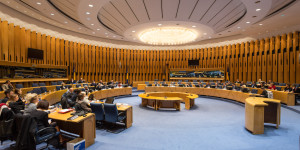The 2nd Subcommittee meeting on Justice, Freedom and Security (JFS) under the European Union – Bosnia and Herzegovina Stabilisation and Association Agreement took place on 30 November and 1 December in Brussels. The meeting was co-chaired for the EU by Ms Michela Matuella, Head of Unit at the Directorate General for European Neighbourhood Policy and Enlargement Negotiations of the European Commission, and for BiH by Mr Igor Golijanin, Chief of Cabinet of the Minister of Security of Bosnia and Herzegovina. The Subcommittee aims at ensuring effective implementation of the Stabilisation and Association Agreement by addressing reforms in the broader rule of law area.
The meeting allowed for a constructive and fruitful discussion on a wide range of issues: the functioning of the judiciary, war crimes strategy implementation, anti-corruption policy, fight against organised crime and terrorism, law enforcement cooperation, anti-money laundering, judicial cooperation, asylum and migration, border management and visa policy, and fundamental rights including anti-discrimination, protection and rights of members of vulnerable groups, gender equality and freedom of expression.
BiH authorities provided an overview of recent developments and future plans in those areas. The Commission stressed the need for sustained progress on reforms, also in view of the preparation of its Opinion on Bosnia and Herzegovina’s application for EU membership.
The Commission emphasised in particular that consolidating the independence, accountability, efficiency and overall professionalism throughout the judiciary is key to strengthen the rule of law in the country. In this respect, the Commission urged the competent authorities in BiH at all levels of governance and in particular the BiH Ministry of Justice to ensure the effective implementation of the Justice Sector Reform Strategy. Moreover, it encouraged the High Judicial and Prosecutorial Council to implement swiftly its action plan covering the Commission’s recommendations based on recent peer reviews.
The Commission also underlined the importance of stepping up efforts in the fight against corruption and organised crime, in particular regarding asset confiscation. It stressed the need to take further measures to counter and prevent terrorism and violent extremism. The Commission took note of the progress made on anti money laundering. Taking positive note of the policy and legal framework on integrated border management, it encouraged BiH to strengthen capacities in this area to improve border control and surveillance.
On fundamental rights issues, the Commission highlighted the need for BiH authorities to ensure the implementation of anti-discrimination legislation, to fight segregation in the education system, to swiftly prosecute hate crimes, including against LGBTI persons, and to coordinate actions aimed at the fulfilment of the rights of the child, of persons with disabilities, of members of minority groups, refugees and internally displaced persons, as well as Roma citizens of BiH. The Commission also recalled the need to ensure non-discriminatory access to free legal aid and to promote women’s rights and gender equality. Finally, the Commission emphasised the need to guarantee freedom of assembly and freedom of expression and of the media, including by ensuring the protection of journalists and finalising the reform of the public broadcasting system.
In each area, the Commission issued policy recommendations to be followed up by the BiH authorities over the next months to strengthen the alignment of Bosnia and Herzegovina’s legislation and practices with European standards and the EU acquis. The Commission reiterated its readiness to further support Bosnia and Herzegovina in the necessary reforms, including by providing policy advice and financial assistance and by mobilising targeted expertise.



